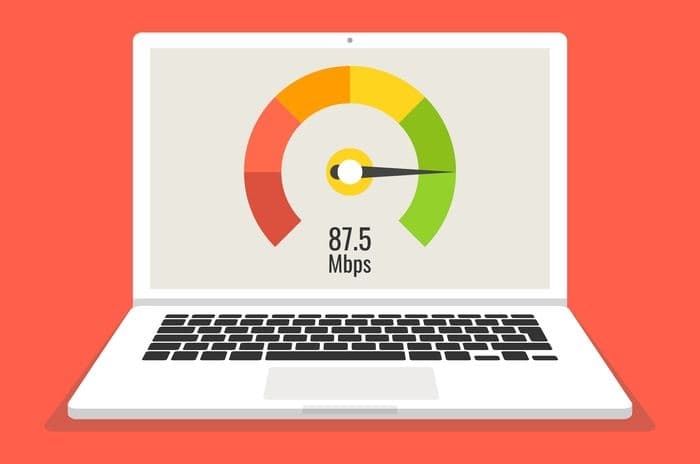Home > Broadband > News > Will CAP rules make broadband adverts more accurate?
Will CAP rules make broadband adverts more accurate?
THE Committee of Advertising Practice (CAP) has released a new code of practice on the way that broadband providers advertise speeds.

CAP is the regulatory arm of the Advertising Standards Authority (ASA) which has dealt with its fair share of complaints about broadband adverts, many of them relating to speed, over the years.
The new rules
The new rules come in the form of two help notes for telecommunications advertisers: one on the use of the term 'unlimited' and one on speeds.
Speed advertising
The most substantial of the speed rules is that broadband providers must start advertising a 'top' or 'up to' speed that can be achieved by at least 10% of their customers.
In the ASA/CAP consultation that preceded the speeds investigation earlier this year, the 10% option was called 'option B'.
In the report, the ASA said that the 10% approach was "consistent with the ASA's policy on "up to" claims in other sectors."
In addition, however, the guidance note says that where a "significant proportion" of consumers won't be able to receive the advertised speeds, providers should include more specific speed averages such as X% of our customers receive speeds above YMbit/s.
'Unlimited' claims
Under the new guidance, the term "unlimited" can still be used if their broadband deal has a fair use policy but not if the customer would incur an additional charge or suspension of service if they exceeded that policy.
Fair use policy limitations that affect speed or usage must be 'moderate' and clearly explained in the advertisement.
More accurate?
"This new guidance directly responds to consumer concerns by setting an appropriately high bar for advertisers who want to make speed and 'unlimited' claims in ads. Advertising is only effective if consumers trust the messages they see and hear. This guidance will help deliver that," said the Chairman of CAP, James Best.
In general, though, regulators and consumer groups were underwhelmed by the new rules.
For many, that was because they'd been hoping for an approach that emphasised average speeds as opposed to ideal or 'up to' speeds.
Average speed advocates
In a statement industry regulator Ofcom said, "We are disappointed that it appears not to be possible to establish a single, clear and consistent 'Typical Speed Range'.
"Our view is that this is the best way to ensure that consumers are able to compare the wide range of packages that are available."
Under the new rules broadband providers will have to advertise headline speeds that are actually received by at least 10% of customers.
However, some worries have been raised about potential holes in the plans.
Consumer champion Which? complained that broadband providers had been given "the green light to mislead" consumers about their products and services.
Executive Director of Which?, Richard Lloyd said, "The rules say that providers don't have to state what range of speeds most of their customer's experience.
"That means advertising campaigns can now be based on the experience of a privileged few. If just one in 10 customers get access to the top speeds advertised, that's within the guidelines."
Data problems
In addition, broadband providers will be able to use their own data for measuring the speed of their top 10% of customers, leading some to think that there could be instances of broadband jiggery-pokery.
It will be interesting to see, however, exactly how the broadband providers have agreed that the data to support average speed claims should be collected.
In the past, BT and similar providers have argued that advertising average speeds gives a distorted view of providers that serve many more rural areas, where speeds are inevitably slowed by the long distances the services travel.
The ASA warns in the report that speed data will need to be normalised to account for the profile of the provider's overall customer base, including factors such as line length.
It also notes that providers will need to take account of "reductions in speed caused by factors such as congestion during peak times and policies imposed by ISPs, such as traffic management."
Could O2's recent return to truly unlimited broadband have been partially motivated by the provider's need to avoid black marks in its speed tests?
Limiting unlimited
Another point of contention is that the guidance doesn't go far enough to preventing the unscrupulous use of the term 'unlimited' which these days can mean only a limited amount of unlimitedness.
The new rules say that unlimited broadband can only be sold as such if users are not charged or have their service suspended for falling foul of a traffic management or fair use policy.
The new terms do allow ISPs to use traffic management but only if it does not unduly affect the user. This leaves many observers scratching their heads.
Lloyd added that, "the clamp down on 'unlimited' claims also hasn't gone far enough.
"'Unlimited' should mean unlimited at your normal broadband speed, but ISPs will be allowed to slow down a supposedly 'unlimited' connection once a customer goes over a certain threshold."
Some operators advertise 'unlimited' policies that have tough traffic management policies applied to them.
It's unclear whether they will be allowed to continue as it could be argued that these policies have an undue effect on end users.
No rules for the fastest
But there's one provider that won't be worrying about the effect of fair use on speeds and it's not for lack of fair use policies: Virgin Media.
The UK's fastest broadband speeds (table here) - those delivered by fibre connections - will apparently not be included in the advertising regulations, only copper line ADSL services will need to come to heel.
In a statement, Virgin Media suggested that not including fibre was a kindness to the BT Infinity service which has performed less well than the provider's own fastest service in independent speed tests.
"We are very concerned that people paying for fast broadband continue to be misled and believe it is absolutely essential consumers have all the information they need up front so they can make an informed choice," the provider said.
Get insider tips and the latest offers in our newsletter

We are independent of all of the products and services we compare.

We order our comparison tables by price or feature and never by referral revenue.

We donate at least 5% of our profits to charity, and we aim to be climate positive.
Get insider tips and the latest offers in our newsletter




